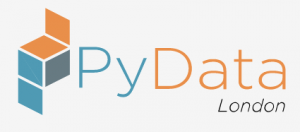Entrepreneurial Geekiness
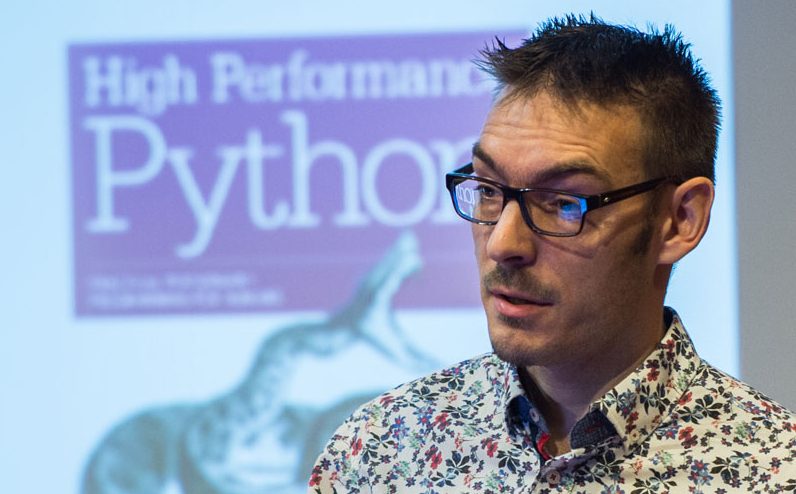
Looking back on 2018, looking to 2019
So last year was a damned hard year – ignoring Brexit and other international foolishness, on a personal level (without going in to details) by mid-year I was emotionally wiped out. A collection of health issues between family and friends kept rearing their ugly heads and over time I ran very low of emotionally supportive energy to share. Our not-so-old cat suddenly dying of kidney failure just about topped the year off. Thankfully by Christmas most of the health issues had sorted themselves out, massively reducing their induced stress.
From August to December I worked deliberately at a much lighter level to give myself time to recuperate, that’s paid off well and by Christmas I could consider myself “reasonably back to my old self”. Sometimes it pays to just be kind to ourselves.
This led to the odd situation later in the year when I was given the NumFOCUS Community Service Award – I had to accept it with a bit of a wry grin as I’d already stepped back from many organisational roles in PyDataLondon by this point. The lovely outcome of stepping back was that…nothing really changed for PyDataLondon. I’m immensely proud of the organising team we’ve built, everything just kept ticking along nicely. I’m now back to being more involved and I’m happy to say we’ve got so many suggested talks coming through that we’re scheduled now for a chunk of the year ahead.
The continued growth in our PyDataLondon community (with 8,500+ members – AFAIK we’re the largest data science event in the UK) and the wider PyData community (over 127 international PyData communities) is lovely to see. I helped open the PyDataPrague meetup a few months back and was happy to share some of our lessons from growing our London community.
I’m also very happy to see the PyData conferences experiment with more non-traditional sessions. At PyDataLondon 2018 we’d added a creche and ran sprints and workshops like “making your first open source contribution” and “understanding how git works” to help attendees get more involved in our open source ecosystem. Last year we had art and political hackathons and a woman-focused lunch. At PyDataAmsterdam we ran some similar experiments and I know others were tried at other events. This year I’m looking forward to seeing even more experiments, we’ll certainly run more at PyDataLondon 2019 (July 12-14).
Out of all of this there are a few things I’m particularly proud of:
- We raised £91,000 for NumFOCUS from our volunteered efforts in PyDataLondon 2018 towards grants and work to support open source
- We saw the opening of 6 regional PyData events in the UK (by recency: Oxford, Cambridge, Manchester, Edinburgh, Bristol, Cardiff)
- I got to speak on ways of tackling new data science projects, high performance and how NumFOCUS works at a variety of international events
- Via the “making your first open source contribution” sessions I ran I helped several groups of people start to contribute on github to Python projects
Whilst 2018 have some tough components, I’m really happy with the positive events that occurred.
Separately from all of this Chris and I have started to shut down ModelInsight after 5 years of collaboration. We only lightly worked on our consultancy in 2017 and we hardly touched it in 2018. The market for the combination of data science and data engineering that we were interested in exploring never grew, we had a lot of fun with our clients but it didn’t feel like we were taking the business anywhere special. Shutting this down was the right call.
I continue with my usual activities under my own name. In a few weeks I run a new course on Successfully Delivering Data Science Projects, I have other training planned, I’ve started to author on-line videos for Pluralsight and I continue to coach teams as Interim Chief Data Scientist whilst my jobs list continues to help companies recruit and folk get new jobs.
I’m also trying a few personal-focus experiments. From Christmas I put in a time limit on my Android for a maximum of 5 minutes daily on Twitter and 10 minutes daily on Reddit. I’ve also blocked The Independent (my preferred news site) in Firefox to reduce my time-wasting habits. I’ve set aside a day for personal development (I have such a pile of interesting math & data science stuff I want to read). Ask me in a few months how this is all turning out.
Ian is a Chief Interim Data Scientist via his Mor Consulting. Sign-up for Data Science tutorials in London and to hear about his data science thoughts and jobs. He lives in London, is walked by his high energy Springer Spaniel and is a consumer of fine coffees.
New public course on Successfully Delivering Data Science Projects for Feb 1st
During my Pythonic data science team coaching I see various problems coming up that I’ve helped solve before. Based on these observations and my prior IP design and delivery for clients over the years I’ve put together a 1 day public course aimed at data scientists (any level) who want to be more confident with lower-risk approaches to delivering data science projects.
Successfully Delivering Data Science Projects runs on Friday February 1st 2019, early bird tickets have sold out, a handful of regular tickets remain (be quick). This course suits any data scientist who has discovered just how vague and confusing a research to deployment project can be, who’d like to be more confident in their plans and outcomes.
I’ve developed these techniques whilst working with the teams at companies like Hotels.com, Channel 4, QBE Insurance and smaller companies across domains including media, energy, adtech and travel.
The topics covered in the course will include:
- Building a Project Plan that derisks uncertainties and identifies expected deliverables, based on a well-understood problem and data set (but starting from…we don’t know what we have or really what we want!)
- Scenarios based on real-world (and sometimes very difficult) experience that have to be solved in small teams
- Team best practice with practical exercises covering coding standards, code reviews, testing (during R&D and in production) and retrospectives using tools such as pyjanitor, engarde, pandas profiling and discover-feature-relationships.
- Group discussion around the problems everyone faces, to be solved or moved forwards by everyone in the group (the group will have more experience than any single teacher)
- A slack channel that lives during and after the course for continued support and discussion among the attendees
You’re welcome to get in contact if you have questions. Further announces will be made on my low-volume training email list. I will also link to upcoming courses from my every-two-weeks data scientist jobs and thoughts email list.
Ian is a Chief Interim Data Scientist via his Mor Consulting. Sign-up for Data Science tutorials in London and to hear about his data science thoughts and jobs. He lives in London, is walked by his high energy Springer Spaniel and is a consumer of fine coffees.
Talking on “High Performance Python” at Linuxing In London last week
Mario of PyLondonium (where I gave a keynote talk earlier this year) was kind enough to ask me along to speak at Linuxing in London. I gave an updated version of one of my older High Performance Python talks based on material I’d covered in my book, to show the more-engineering audience how to go about profiling and speeding up Python code. The audience was lovely, many were new to Python and also first-timers at the meetup, here’s half the room:
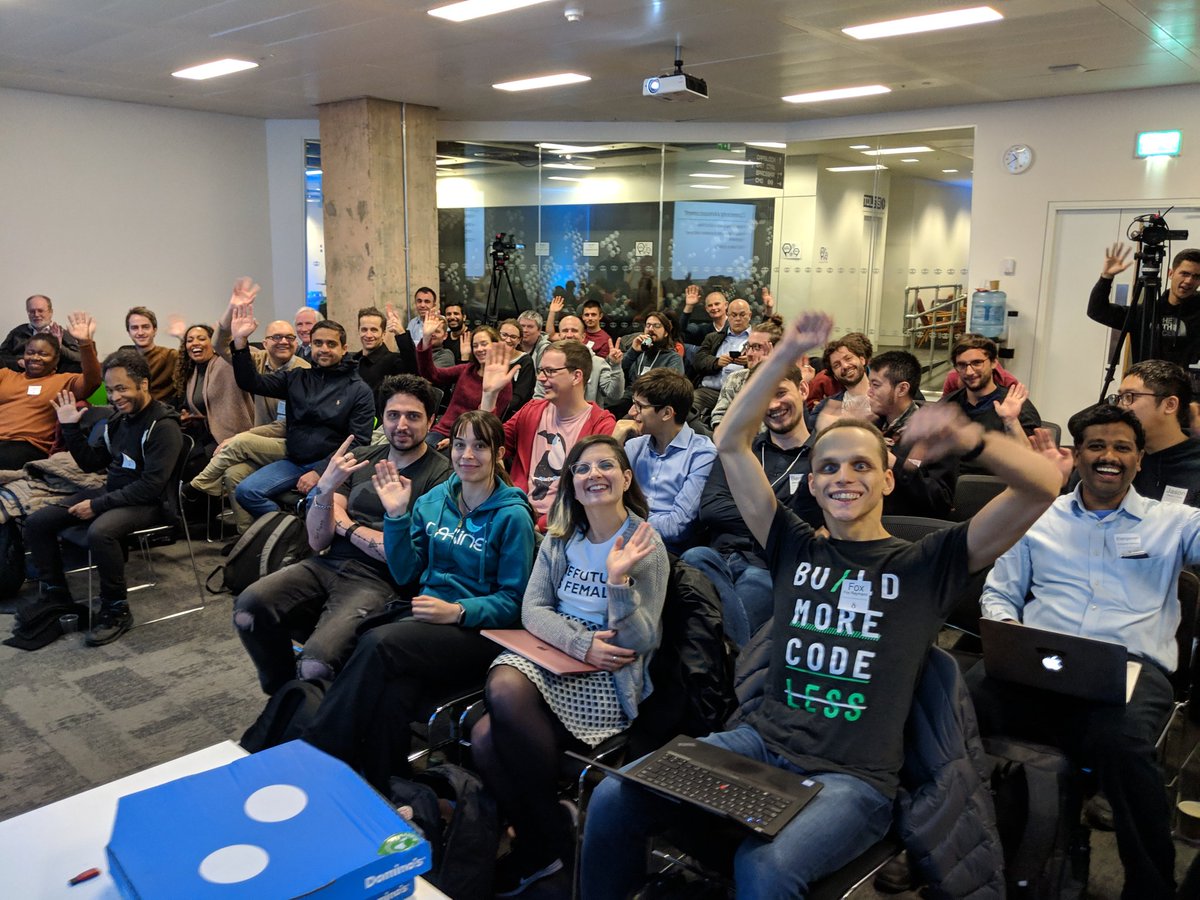
We covered:
- Profiling with line_profiler (in a Notebook – thanks Robert!) to identify slow code in functions
- Using numpy incorrectly to try to get a speed up, then profiling it to see why it didn’t work
- Using Anaconda’s Numba on the numpy code to get a 20* overall speedup
- Using a different algorithm entirely to get a further 1000* speedup (!)
- Thoughts on the two main ways to get a speed-up (do less work or spend less time waiting for data)
- Looking at Py-Spy which hooks into an existing process to profile on-the-fly – a take-away for anyone in an engineering team
Here’s a link to the slides.Thanks to Brian, David and the other organisers for hosting the four of us, it was a fun evening.
I also mentioned my London-based jobs and training email lists and promised to link them here. It was fun to speak to a less-data-science focused audience (where PyData is pretty much my bubble-reality nowadays), especially to meet new folk transitioning into Python from entirely non-technical careers. I reminded everyone that they’re most welcome to visit our PyDataLondon meetups to widen their network, of course London Python and PyConUK should definitely be on your radar too.
Ian is a Chief Interim Data Scientist via his Mor Consulting. Sign-up for Data Science tutorials in London and to hear about his data science thoughts and jobs. He lives in London, is walked by his high energy Springer Spaniel and is a consumer of fine coffees.
“On the Diagramatic Diagnosis of Data” at BudapestBI 2018
A couple of days back I spoke on using diagrams (matplotlib, seaborn, pandas profiling) to diagnose data during the exploratory data analysis phase. I also introduced my new tool discover_feature_relationships which helps prioritise which features to investigate in a new dataset by identifying pairs of features that have some sort of ‘interesting’ relationship. We finished with a short note on Bertil’s ‘data story‘ concept for documenting the EDA process.
I had a lovely room of international folk. We had a higher proportion of Hungarians this year as the organiser Bence has worked to build up the local community. This was followed by a variety of interesting questions around ways to tackle the EDA challenge:
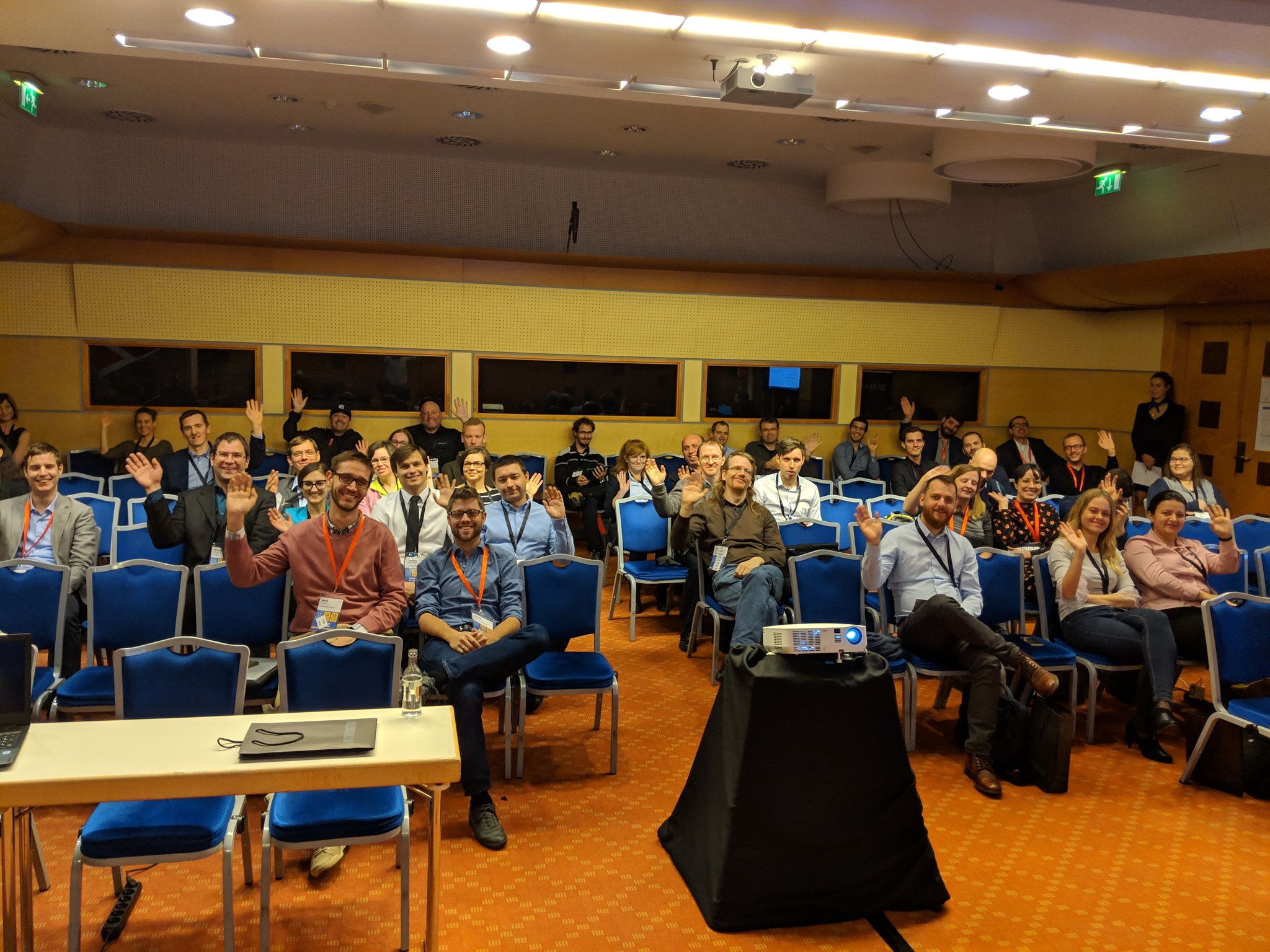
My new tool discover_feature_relationships uses a Random Forest to identify predictive (and possibly non-linear) relationships between all pairs of columns in a dataframe. Typically we’d like to identify which features identify a target in machine learning, here instead I’m asking “what relationships exist throughout my data?”. I’ve used this to help me understand how data ‘works’, this is especially useful in semi-structured business data dumps which aren’t necessarily the right source of data to solve a particular task, but where up-front we don’t know what we have and what we need. I’d certainly welcome feedback on this idea, you’ll see diagrams and example for the Boston and Titanic datasets on the github page.
Next year I’d like to run some courses on the subject of successful project delivery (which includes “what have I got and what do I need to solve this challenge?!”), if you’d like to hear about that then you might want to join my training notification list.
Here are the slides for my talk:
Ian is a Chief Interim Data Scientist via his Mor Consulting. Sign-up for Data Science tutorials in London and to hear about his data science thoughts and jobs. He lives in London, is walked by his high energy Springer Spaniel and is a consumer of fine coffees.
On helping to open the inaugural PyDataPrague meetup
A couple of weeks back I had the wonderful opportunity to open the PyDataPrague meetup – this is the second meetup I’ve opened after our PyDataLondon started back in 2014. The core organisers Ondřej Kokeš, Jakub Urban and Jan Pipek asked me to give two short talks on:
- Introducing NumFOCUS (video for both of my talks) – slides here
- Successfully Delivering Data Science Projects (based on hard-won wins and losses!) – slides here
We had over 100 people in the room, many from the extant local Python meetup.
A looot of interesting advices yesterday from @ianozsvald during 1st ever @PyDataPrague on how to deliver successful Data Science projects. Great one pic.twitter.com/3JUN5Bhi9r
— Matúš Chladek (@emeresto) October 19, 2018
"When we get to the end, do we actually know what the end this" – nice definition of the definition of done by @ianozsvald at @PyDataPrague pic.twitter.com/H2iI2VHbt7
— Showmax Engineering (@ShowmaxDevs) October 18, 2018
Štěpán Roučka also gave a talk on SymPy with lots of lovely demos (video). The organisers were lovely – do please think on speaking out at PyDataPrague, you’ll get a lovely reception. I also got to see the wonderful architecture in Prague and even visit the local observatory where we saw the sun’s corona.
Ian is a Chief Interim Data Scientist via his Mor Consulting. Sign-up for Data Science tutorials in London and to hear about his data science thoughts and jobs. He lives in London, is walked by his high energy Springer Spaniel and is a consumer of fine coffees.
Read my book
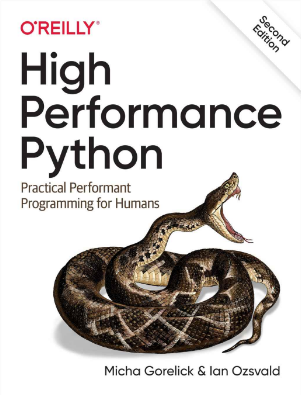
Oreilly High Performance Python by Micha Gorelick & Ian Ozsvald AI Consulting
Co-organiser
Trending Now
1Leadership discussion session at PyDataLondon 2024Data science, pydata, RebelAI2What I’ve been up to since 2022pydata, Python3Upcoming discussion calls for Team Structure and Buidling a Backlog for data science leadsData science, pydata, Python4My first commit to PandasPython5Skinny Pandas Riding on a Rocket at PyDataGlobal 2020Data science, pydata, PythonTags
Aim Api Artificial Intelligence Blog Brighton Conferences Cookbook Demo Ebook Email Emily Face Detection Few Days Google High Performance Iphone Kyran Laptop Linux London Lt Map Natural Language Processing Nbsp Nltk Numpy Optical Character Recognition Pycon Python Python Mailing Python Tutorial Robots Running Santiago Seb Skiff Slides Startups Tweet Tweets Twitter Ubuntu Ups Vimeo Wikipedia

